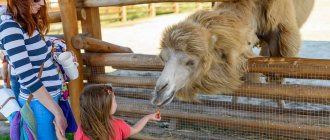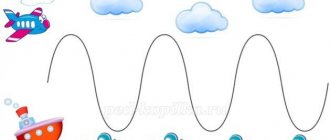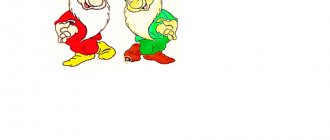Summary of the final subgroup speech therapy GCD in the senior group.
Goal: Consolidation of knowledge in the sections “Sound pronunciation”, “Teaching elements of literacy”, “Lexico-grammatical categories”.
Tasks:
Correctional educational tasks.
- Strengthen the ability to identify a vowel sound;
- To consolidate knowledge about the difference between vowels and consonants;
- Continue the formation of lexical and grammatical categories;
Corrective and developmental tasks.
- Develop phonemic processes, speech hearing, auditory attention, expressiveness of speech;
- Correct pronunciation;
- Correct and develop dialogic speech through the formation of an answer in a complete sentence;
- Correct and develop auditory perception;
- Correct speech breathing;
- Correct and develop fine motor skills of the fingers;
- Develop the ability to coordinate speech with movement, rhythm and smoothness of movements;
- Develop attention and logical thinking.
- Continue automation of correct pronunciation and differentiation of all previously delivered sounds in free activity.
Correctional and educational tasks:
- Develop the ability to listen to the answers of comrades;
- Develop the skills of self-control and self-esteem;
- Cultivate cognitive interest in the sound side of speech;
- Fostering activity, independence, and initiative in educational activities.
Health saving:
- Ensure that the child is seated correctly;
- Contribute to the creation of a favorable psychological climate;
- Alternate static and dynamic exercises;
- Follow the eye protection regime.
Integration of educational areas: speech development, socio-communicative development, cognitive development.
Methods and techniques:
Visual (manuals, pictures);
Verbal (joint speech activity);
Gaming (surprise moment, dynamic pauses);
Practical (completing tasks, exercises).
Preliminary work : familiarization with vowel and consonant sounds, finding and inventing words with a given sound, sound analysis of syllables and short words, dividing words into syllables, working with sentences.
Duration: 25 minutes
Number of children: 3 people
Materials: subject and subject pictures, sound diagrams, individual mirrors, colored pencils, slide presentation
Venue: speech therapist's office
Progress of the lesson:
1. Organizational moment.
Speech therapist: Guys, today I will tell you a fairy tale, and you will help me.
Children sit in a circle on the floor.
2. Reporting the topic of the lesson, updating existing knowledge.
Once upon a time there were three heroes in the world: Roma, Sasha and Rasul. Once the heroes gathered on a long journey, a difficult journey, to see the world, to show themselves.
Speech therapist : Are you scared, heroes?
Children : No! Not scary!
Speech therapist : Can you handle it, heroes?
Children: We can handle it!
Speech therapist : The heroes began to prepare for a long campaign: to test their strength.
2.1. Bioenergoplasty is being carried out . Children in front of a mirror perform articulation exercises in conjunction with hand movements:
They smiled broadly, fingers spread far apart;
They stretched: lips “proboscis”, fingers in a pinch;
They smiled broadly, fingers spread far apart;
They opened their mouth wide; fingers straightened;
They make a “Horse”, suck a wide tongue to the palate, snap their fingers;
A wide spread tongue lies on the lower lip, the mouth is open, the lips are smiling, the palms are calm;
We wrap the edges of the wide tongue into a “cup” and blow into it, joining our palms into a “cup”.
2.2. Speech therapist : The heroes warmed up, measured their strength, and began to collect their things in traveling bags. But the bags of the heroes are not simple, they are magical. Many different objects can be put in them, but with the following conditions: Roma can put into a bag only those objects whose names begin with the sound S, Sasha can only put into a bag those objects whose names begin with the sound P, and Rasul can put only those items whose names begin with the sound Ш.
In front of the children are pictures depicting different objects. Children complete the task: choose the necessary pictures from those offered.
2.3. Speech therapist : The heroes collected their things, put the bags on their shoulders and hit the road. How long or short did it take us to come to the crossroads of three roads? They stand and argue about which road to continue on. They would argue for a long time, but the raven sitting on the sign suddenly spoke: “I will show you a safe path if you encrypt my message.”
Children make syllables from sound patterns.
Speech therapist : The raven showed the way to the heroes, and they moved on.
2.4. Logorhythmic exercise:
| One-two-three, one-two-three - We walked along the path. | March step. |
| The path began to wind Among the tall grasses We walk along it easily, Raising my head. | Snake walking. |
| So we saw the hummocks, We started jumping over them. | Jumping forward. |
| A stream flows ahead Come quickly. | Walking on toes, arms to the sides. |
| Let's spread our arms to the sides, We will cross it. We saw the spring forest And everyone ran to him. | Running in circles. |
Speech therapist : There is a forest ahead. And in the forest there are a lot of... ( children name based on pictures ) trees, mushrooms, birds, animals, berries (R.P. noun in plural).
Speech therapist : We went out to the edge. And there is a hut on chicken legs. He stands there groaning, creaking, and shifting from foot to foot.
-Who lives in that hut?
Children answer.
2.5. Speech therapist : Baba Yaga looks out the window, invites guests into the house, but the hut does not turn towards the heroes. To make her turn around, you need to repeat the exercises after her:
Children perform kinesiological exercises:
raise your right arm and left leg;
touch your right eye with your left hand, etc.
2.6. Speech therapist : The hut has turned. The heroes entered the house. And in that house, everything is upside down.
Speech therapist: Guys, look carefully at the picture and tell me where these objects should be (understanding and using simple prepositions).
Children look at the picture and “put” things back in place (Flowers are in a vase. The dress is hanging in the closet).
Speech therapist : While the heroes were putting things in order in the house, Baba Yaga set the table.
2.7. Speech therapist : Guys, choose your own pictures. Consider what is depicted on them. Tell us what kind of tea Baba Yaga treats you to.
Pictures of cups with tea bags and pictures of pies are laid out in front of the children. Children choose pictures for themselves (word formation and inflection, agreement of nouns with other speech).
Children: tea with strawberries - strawberry, etc. Pies with cabbage, etc.
Speech therapist : The tea is hot. The heroes began to blow tea.
2.8. Breathing exercises (Children blow through a tube into a glass of water. Inhale short, fast, exhale slowly, long)
Speech therapist : The heroes ate and went on their way. And Baba Yaga prepared a magic ball for them. Only this glomerulus must first be found.
2.9. Speech therapist: Guys, look at the picture and find the same ball as in the frame. Circle it (development of attention and thinking).
Children complete the task.
Speech therapist : I brought their little ball to the town. Where everything is confusing. And the residents of the town cannot figure it out on their own.
2.10. Speech therapist: Guys, listen carefully to the sentences and look at the pictures. Tell us what we can change.
Game “Complete the sentences correctly” The fisherman caught... (a fish). The dressmaker sews...(dress). The housewife feeds... (the goose). Mom is washing... (handkerchief). The dog is catching up... (the boy).
Children complete the task.
3. Summary of the lesson. Reflection.
Speech therapist : Our heroes were so tired that they decided to return home. They have seen a lot, helped many, proven themselves, and it’s time to return home. And their family and friends are waiting for them at home, to whom our heroes will tell about their adventures.
Children share their impressions of the lesson.
Summary of a group speech therapy lesson for younger schoolchildren (grades 3-4)
Summary of a group lesson for younger schoolchildren (grades 3-4) “Clever words: through play to perfection” as part of the International Russian Language Day
Prepared by: teacher-speech therapist Elena Vladimirovna Vavinova Lesson duration: 45 minutes. Age of children: junior schoolchildren (3-4 grades). Form: quiz lesson. Goal: consolidation of acquired knowledge in the Russian language. Educational objectives: systematize and generalize knowledge of the Russian language. Correctional and developmental tasks: to develop memory, attention, interaction of visual, auditory, speech-motor analyzers. Educational objectives: to cultivate respect for the Russian language, the ability to interact in a group. Material and technical equipment: computer, whiteboard, individual cards, visual aids, pencils, pens, magnets.
Progress of the lesson
Org.Moment. Greetings. Today we have an unusual activity. We will travel. And we will travel to the country of the “RUSSIAN LANGUAGE”. To travel, we need to divide into two teams and choose captains. And each team must come up with a name for itself. Main part. The country of the Russian language is far away and difficult to get to. Look at the path ahead of us, where we encounter obstacles. And the motto of our journey: Read together and amicably. “We will remember every moment. Our best friend is our native language! Ready for the journey, let's begin! For each correctly completed task, the team receives a piece of the journey map. The winner will be the team that collects the entire map of the “Russian language” country. 1. Game “Boat” To sail on a boat, we need to complete a task about it. I made the word BOAT from the letters, we can go for a ride, by the way, After all, in the word BOAT there is a river. Get on the road, bye, bye! The kind boat told me where we’ll go – to Aunt KATA’s. But aren’t there other words in it - my BOAT is rushing faster than ROCKETS. And again the boat prompted me to look for a route on the MAP. We go out to sea. Enough REC. Hooray! We docked. ARTEK. Who guessed what the task would be? Make new words from the letters of a given word. Team 1 receives the word “traffic light” (light, advice, cable, torso, height) Team 2 receives the word “carrot” (mosquito, crust, darkness, food, bark) (We receive parts of the map). 2. We sail further on the boat. Stop again. We need to complete some task. We will find out where to look for the task if you guess the riddle. My white brother lives in the ice Fish eats sea fish And I love bee honey And wild berries (The bear lies on the table, and the task is printed on it. Whoever guesses the riddle first reads it out loud) 3. Task. “Collect sentences” Representatives from each team go to the board, where they collect sentences from words. The cat sleeps on a soft bed. Spring leaves are rustling in the trees. In a ravine behind the forest a fast stream gurgles. The fox tiptoes quietly towards the tree. There was an angry dog living in a booth near the house. Well done. Teams receive more pieces of the map. Let's swim further. Physical exercise. You and I ended up in a swamp. To choose from it you will have to play with frogs. We need to stand up, watch the frogs with our eyes and we can repeat the movements after them. So we need to move on. What is our motto? Repeated everything together 4. Game “Cryptor” Guess which word is encrypted. But you and I need to find the key to the cipher, to do this, guess the riddle. On the page of the ABC book Thirty-three heroes. Every literate person knows the sages-heroes. (alphabet) (set of signs on a letter, primer - book) A-1; B-2; AT 3; G-4; D-5; E-6; Yo-7; Zh-8; Z-9; I-10; Y-11; K-12; L-13; M-14; N-15; O-16; P-17; R-18; S-19; T-20; U-21; F-22; X-23; Ts-24; Ch-25; Sh-26; Shch-27; b-28; Y-29; b-30; E-31; Yu-32; I-33. For example: sound - 9,3,21, 12. 1st command - 17,10,19,1,20,30 (write) 2nd command - 25,10,20,1,20,30 (read) Now - each of teams must encrypt one word, and guess it in the second. Well done. Collecting parts of the map. 5. Game “Place the dots” Let's move on. And we have to put the dots correctly with you. The captains of each of their teams come to me and choose a task for their teams. A lion and a mouse LION SLEEP A GRAY MOUSE RUNNED OVER HIS BODY HE WOKE UP AND CATCHED IT THE MOUSE BEGAN TO ASK TO LET HIM GO SHE PROMISED TO DO HIM GOOD THE LION LET HER GO Travelers ONE OF MY FRIEND LIVED WITH TWO FOX CHIPS THESE WERE NASTY AND B QUIET ANIMALS THEY SLEEP UNDER THE BED BY DAY AND WOKE UP AT NIGHT AND WALKED AROUND THE ROOM UNTIL THE MORNING Result. Who can tell which country we traveled to today? What is our motto? Well done. Each team receives puzzle pieces. Your task is to collect the entire map. We glue all the details onto a sheet of paper. List of used literature.
1. Efimenkova L.N. Correction of errors caused by immature phonemic hearing. Part 2.-M.: Knigolyub, 2005.-126 p. 2. Efimenkova L.N. Correction of errors caused by immature phonemic perception. .-M.: Knigolyub, 2006.-144 p. 3. Zegebart G.M. Learning without pain. Correction of dysgraphia. –M.: Genesis, 2014. 4. Zegebart G.M. Learning without pain. Unstressed vowels. Correction of dysgraphia. –M.: Genesis, 2009. Used Internet resources. 1. site for children: songs, riddles, coloring pages, games.
We recommend watching:
Summary of a speech therapy lesson in a group of children with intellectual disabilities. Speech therapy lesson in 4th grade. Speech therapy lesson for children with intellectual disabilities, 4th grade. Notes with presentation Notes of a speech therapy lesson with presentation, 4th grade. Exposition “The Rooks have Arrived”
Similar articles:
Summary of an open speech therapy lesson, grades 2-3




